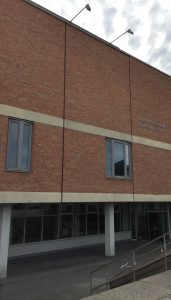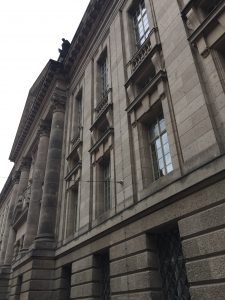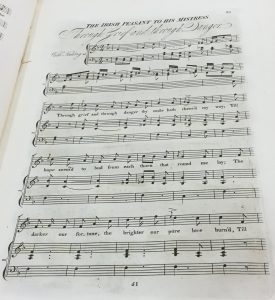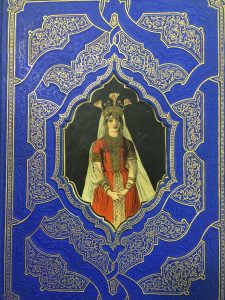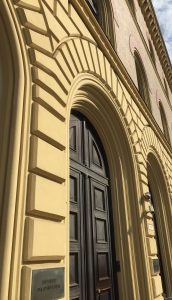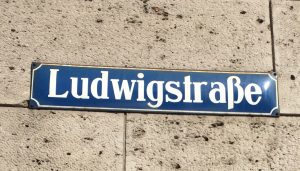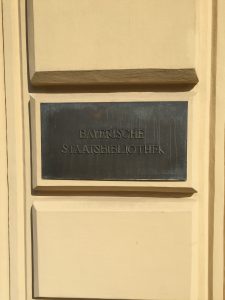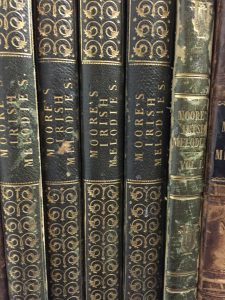
The Gibson-Massie Moore collection. Image courtesy of Special Collections and Archives, Queen’s University Belfast
At www.erin.qub.ac.uk you will find the ‘Home’ tab and the ‘Search resources’ tab. These lead to the ‘simple search’ interface of the ERIN catalogue, a resource which documents editions of Moore’s Irish Melodies, his National Airs, and also music inspired by these series as well as music inspired by Lalla Rookh. The time frame is 1808-1880; European publications only are featured; it represents the collections of eight European libraries: McClay Library, Queen’s University Belfast; the British Library; the National Library of Ireland; the Royal Irish Academy; the Bibliothèque nationale de France; the Staatsbibliothek zu Berlin; the Bayerische Staatsbibliothek, Munich; and the Universitätsbibliothek Leipzig. These were chosen to represent four nations where he was particularly popular (Ireland, Great Britain, France, and Germany). Further considerations were either the size of their collection on Moore, or the uniqueness of their holdings.
The catalogue currently holds nearly 1000 records within. Although all libraries are represented, there are additional entries to come for the British Library (circa 125 records, mainly instrumental arrangements), Queen’s University Belfast (circa 125 of records, further Irish Melodies), and Leipzig (circa 30 records). Further blogs will report as these final stages of the catalogue are completed.
Brief guide to the catalogue: The Home and ‘Search the resources’ tabs lead to the simple search interface of the catalogue. The user enters a keyword of interest to them, examples including: the name of a composer, performer, artist, engraver, publisher, or bookseller from the 19th century; a musical instrument, or a European city. ‘Select relation’ enables the user to filter results to ‘Irish Melodies’, ‘National Airs’, or ‘Lalla Rookh’. The results can be sorted by title, or by date. They are displayed in two formats: as a list with basic information; to see the details of a particular source, click on its title.
The advanced search option enables the user to access search terms that represent the actual contents of the database as well as its indexing terms. The user can achieve more specialised searches here. The fields include: free keyword, relation (Irish Melodies, Lalla Rookh, National Airs), place of publication, agent role (eg, author, composer, dedicatee, illustrator, publisher, etc.), language, type (kind of score: the musical forces or instruments required), as well as a date filter. The get the best result when searching for a range of dates enter your earliest date of interest in the from field, and then sort by date. It is not necessary to put data into all the fields when searching. Choose Relation combined with one or two other fields to gain the best results. The advanced search enables the user to access index terms that will produce results in the database; these terms can sometimes work most effectively in the simple search.

